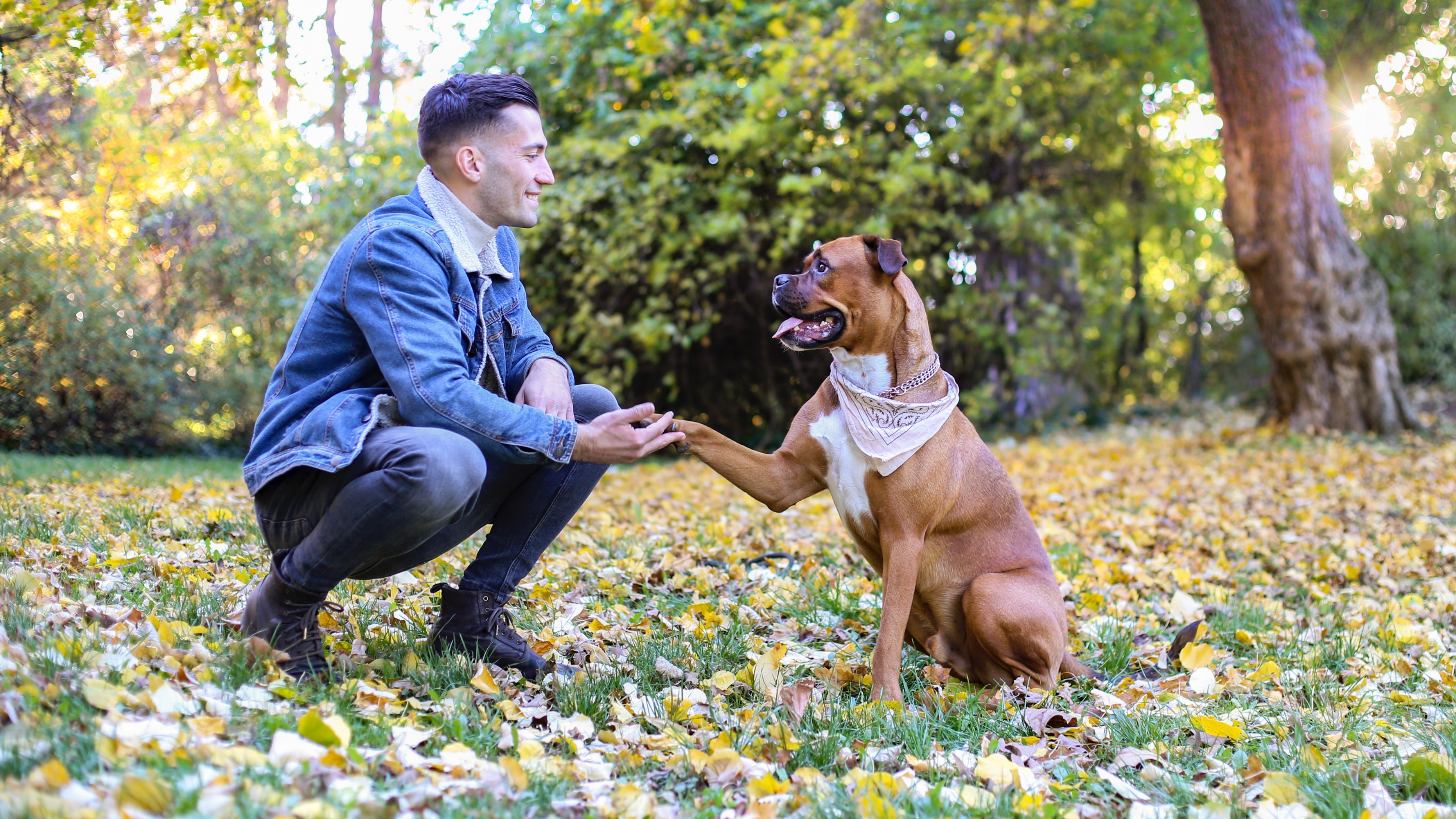Here are five non-negotiables one trainer requires from her clients (and we weren't expecting number three!)
Take these on board for more productive and effective training.

When you’re training your pup, you’re in partnership together. Sure, there are things you’re hoping your dog will do, but at the same time you’re improving your relationship and bond with them, and it’s important to look at how you can improve as a dog parent, too.
Of course, that goes for all of us! None of us are perfect, whether you’re a first-time puppy parent just learning the ropes or you’ve had canine pals (and are more than familiar with the best dog treats!) for years. And, Jasmine Kelem – a professional pet and service dog trainer and the head trainer at Golden Mal Dog Training – has outlined the five non-negotiables she expects from her (human) clients in a recent Instagram post.
“I don’t require much from my clients,” Kelem begins. “I don’t require them to have any specific kind of dog, have any specific kind of goal, or use any specific tools. But these things? Non-negotiable.”
1. Daily biological fulfillment: Kelem says, “I will never teach a dog to lie on place if the owner is not also willing to take them to the park. I will not teach a dog to be ‘calmer’ if the owner is not also learning to provide enrichment, exercise, stimulation.”
It’s important to dedicate time to your dog each day to let them fulfill natural canine needs – while many of us lead busy lives, even taking a short amount of time every day to give your dog physical and mental stimulation can be effective. Why not try these 10 great brain games for dogs?
2. Long-term commitment: While Kelem makes exceptions for virtual training and some specific situations, she likes training to be a long-term experience.
She explains, “Relationship building isn’t just for you and your dog, it’s for you and me as well. Every trainer operates differently, but I find it essential to work long-term and deeply with my clients.”
Get the best advice, tips and top tech for your beloved Pets
3. Maintain their dog’s body condition: “Behavior and training are not isolated to active learning,” Kelem says. Your pup will be affected by their weight, and in turn their health and comfort level. She acknowledges that this can be a touchy subject, but it’s not one she’s willing to ignore.
4. Compromise: “Many of my clients are pet owners with a working breed, or new rescue dog parents that didn’t exactly get the rose-colored story they were sold at the shelter,” she continues. “Compromise can come in many ways: you and your dog, me and you, you and yourself.”
Maybe you’ll have to give your dog a little longer at the dog park, even if it’s not extremely convenient for you. You might find yourself using training methods you wouldn’t have thought about before, or accepting that your pup just isn’t into some of the activities you were hoping to do with a dog.
5. Have patience: Patience is key, as training is a long process rather than a magic wand. “Both you and your dog are learning new ways of living, new routines, new muscle memories, new activities,” explains Kelem.
Every pup, every dog parent, and every trainer is different – here’s how to spot dog trainer red flags to help you find a suitably qualified professional. However, Kelem’s advice is worth following for a happier dog and to help everyone involved get the most out of training.

Adam is a freelance journalist specialising in pets, music and culture, and mental health and wellbeing. He investigates and writes the large majority of news on PetsRadar, and collaborates with veterinary experts to produce informative pet care content.
Adam has a journalism degree from Southampton Solent University and a masters degree in Magazine Journalism from Cardiff University. He was previously senior editor at dog advice website DogTime.com, and has also written for The Independent, GoodToKnow and Healthline.
He owns two rescue cats, Bunny and Dougie, and has also previously had a rabbit, fish and Roborovski dwarf hamsters.
